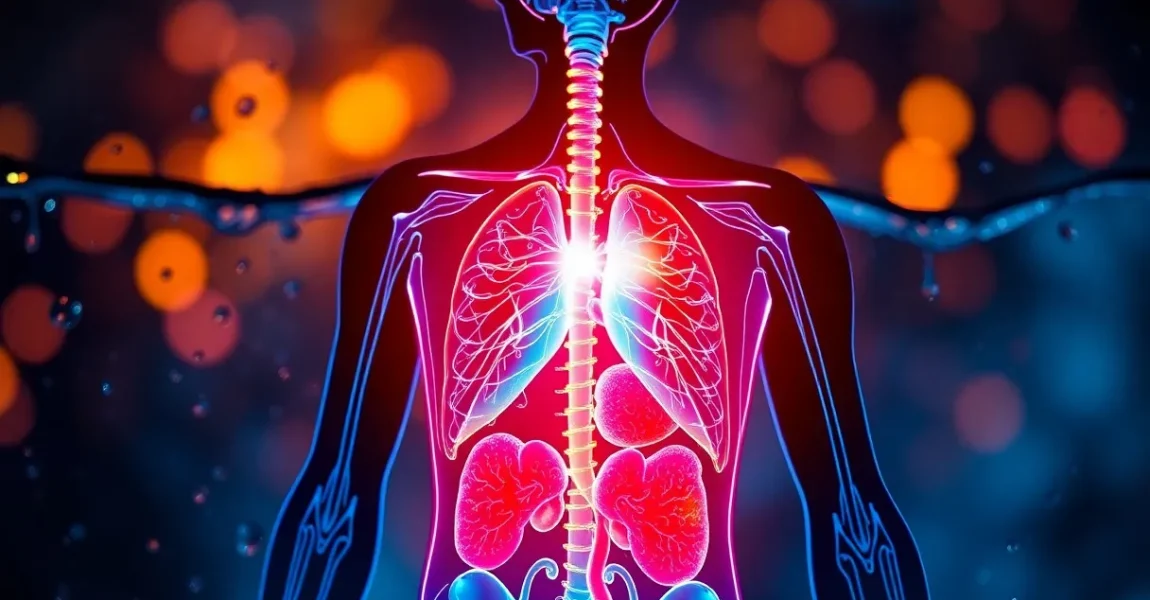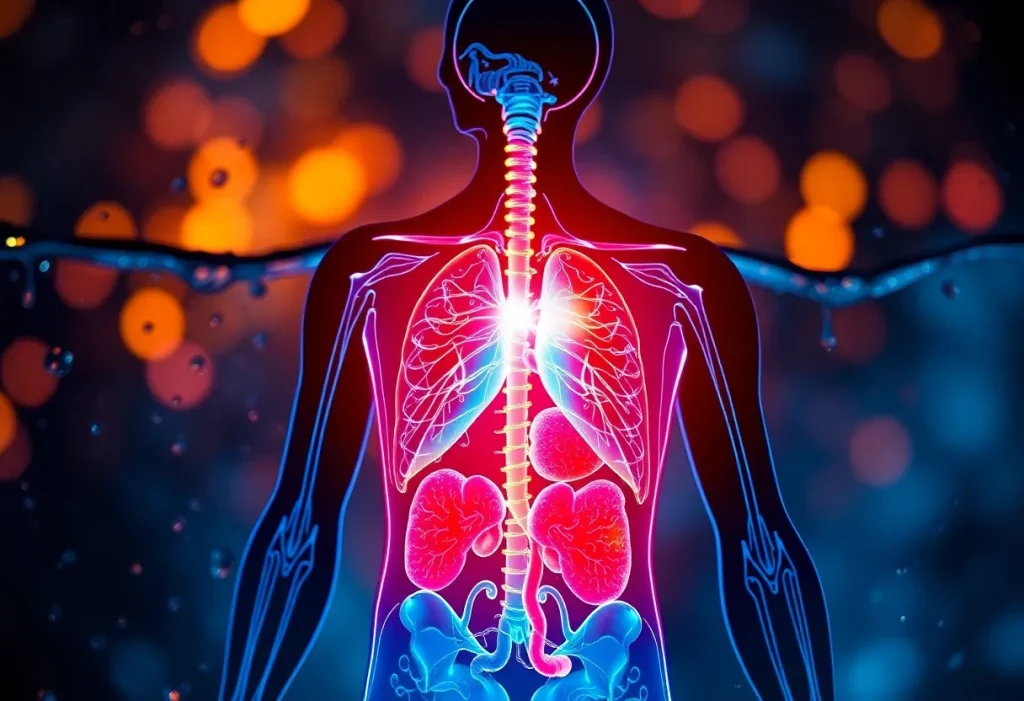
Over time, you’ve probably heard countless tips on strengthening your immune system, but have you considered how hydration plays a vital role? Proper hydration is often overlooked, yet it is vital for many bodily functions that help fend off illness and infection. Staying adequately hydrated not only supports your body’s natural defenses but also enhances nutrient absorption and flushes out toxins. In this post, we’ll explore how simple changes to your fluid intake can significantly impact your immune health, ensuring you stay strong and energized. Stay healthy and energized with our water for dispensers—providing pure, convenient hydration to strengthen your immune system and keep your body in peak condition..
Contents
- 1 The Connection Between Hydration and Immune Function
- 2 Dehydration and Its Impact on Immunity
- 3 Hydration Best Practices for Immune Support
- 4 The Influence of Diet on Hydration and Immunity
- 5 Future Research Directions and Implications
- 6 Summing Up
- 7 FAQ
- 7.0.1 Q: How does hydration specifically impact immune function?
- 7.0.2 Q: What are the signs that I may not be drinking enough water for my immune health?
- 7.0.3 Q: Are there specific beverages that enhance hydration better than plain water?
- 7.0.4 Q: How much water should I be drinking daily to support my immune system?
- 7.0.5 Q: Can over-hydration negatively affect my immune system?
Key Takeaways:
- Maintaining proper hydration levels helps optimize the function of lymphatic systems, which play a significant role in immune response.
- Water aids in the production of lymph, a fluid that helps transport immune cells throughout the body.
- Staying hydrated supports the mucosal membranes, creating a barrier against pathogens and reducing the likelihood of infections.
- Dehydration can lead to increased stress hormones, which may weaken the immune system’s effectiveness.
- Drinking adequate fluids can help flush out toxins and support overall bodily functions, enhancing immune health.
The Connection Between Hydration and Immune Function
A well-hydrated body is better equipped to tackle infections and diseases. Dehydration can lead to decreased blood volume and reduced circulation, which means that immune cells may not be adequately delivered to sites of infection. Water serves as a medium for transporting nutrients and removing waste products, ensuring that your immune system can function optimally. With around 60% of your body weight composed of water, every cell—including those that form the backbone of your immune system—relies on hydration to perform effectively. As you lose fluids through sweat, urine, and breathing, it’s important to replenish them in order to facilitate the necessary chemical reactions that support immune responses. Support your immune system the smart way—our water dispenser makes it easy to stay hydrated with clean, great-tasting water available anytime you need it.
How Water Affects Immune Cells
Immune cells, including lymphocytes and macrophages, thrive in hydrated environments. Studies indicate that even slight dehydration can impact the production and function of these critical cells. For instance, T-cells, which play a pivotal role in identifying and eliminating pathogens, rely on optimal hydration to maintain their structural integrity and functionality. A lack of adequate water diminishes their capacity to communicate and mount an effective response against invading microorganisms. Additionally, hydration influences the production of antibodies, which are important for targeting specific foreign invaders.
The Role of Electrolytes in Immune Response
Electrolytes like sodium, potassium, calcium, and magnesium are vital for maintaining cellular homeostasis and are particularly important for immune function. They help regulate fluid balance and nerve signaling, which is fundamental for triggering the immune response when needed. A well-balanced electrolyte level ensures that hydration effectively supports your immune cells. For example, potassium helps in the activation of T-cells, while sodium participates in the inflammatory response when the body encounters pathogens. Insufficient electrolyte levels can hinder these processes, weakening your immune defense.
Taking in enough fluids containing electrolytes—such as sports drinks, coconut water, or even natural foods like bananas and leafy greens—can enhance your body’s resilience against illness. Beyond just hydration, your body needs a balanced mix of electrolytes to generate the signals necessary for a coordinated, robust immune response. Thus, focusing on fluid intake that also replenishes these critical ions enables you to keep your immune system primed and ready to fight off infections more effectively.

Dehydration and Its Impact on Immunity
The Immune System: A Defense Mechanism Under Threat
Your immune system serves as the body’s primary defense against pathogens, working tirelessly to keep you healthy. Dehydration poses a significant threat to this vital defense mechanism. When you are dehydrated, the concentration of crucial nutrients and electrolytes in your body diminishes, which can hamper the performance of your immune cells. For instance, studies show that dehydration can lead to reduced production of lymphocytes, the white blood cells responsible for fighting off harmful microorganisms. This reduction weakens your body’s ability to respond effectively to infections, making you more susceptible to viruses and bacteria.
<pFurthermore, dehydration can impair the function of your mucosal barriers, which serve as the body’s first line of defense. These barriers, found in places like your respiratory and gastrointestinal tracts, rely on adequate moisture to operate optimally. When dehydrated, these barriers become compromised, allowing pathogens to enter your bloodstream more easily and lead to infection. Your immune system is left scrambling to react, putting you at a disadvantage in fighting off illnesses.
Common Symptoms and Long-Term Health Consequences
Awareness of dehydration symptoms can help you take action before your immune system suffers too much. Common indicators include fatigue, dry mouth, dizziness, and decreased urine output. When you don’t get enough fluids, not only does your energy deplete, but your overall mood can also shift, as dehydration often leads to irritability or anxiety. Such symptoms signify that your body is struggling to maintain its everyday functions, including immune responses. Ignoring these signs may have long-term repercussions on your health.
Long-term exposure to dehydration can lead to chronic health issues that further compromise your immune function. Studies suggest that inadequate hydration may contribute to conditions such as kidney stones, urinary tract infections, and even some forms of cancer. Since your body may not function correctly over an extended period of dehydration, the deterioration of your immune health can escalate, making it more challenging to recover from infections or illnesses. Prolonged dehydration is not just a temporary setback; it can lead to serious complications and a downward spiral of health.
Truly, the ramifications of dehydration are severe and multidimensional. From systematically weakening your immune responses to paving the way for serious diseases, the effects can spiral quickly out of control. Research emphasizes that maintaining optimal hydration is not just about quenching your thirst; it’s vital for sustaining your body’s defenses and promoting long-term health. Despite the daily demands and busy schedules you may have, prioritizing your fluid intake will pay dividends in keeping your immune system robust and responsive.
Hydration Best Practices for Immune Support
Daily Water Intake Guidelines
To optimize your immune system through hydration, aiming for a daily water intake of about half your body weight in ounces is a practical guideline. For instance, if you weigh 150 pounds, strive for approximately 75 ounces of water each day. Factors such as activity level, climate, and individual health conditions may necessitate adjustments to this baseline. The prevailing mantra is to listen to your body; thirst is your natural indicator that it’s time to hydrate.
In addition to plain water, consider integrating hydration into your meals and snacks. Eating foods with high water content—like cucumbers, watermelons, and oranges—can contribute significantly to your overall fluid intake. Following your meals with a glass of water can further enhance absorption and contribute to a robust immune system by helping flush out toxins and keep you hydrated throughout the day.
Hydration Strategies Beyond Plain Water
Enhancing your hydration routine doesn’t have to revolve solely around plain water. Natural electrolyte-rich drinks, such as coconut water or homemade sports drinks, can provide not only hydration but also important minerals that support cellular function. Herbal teas, broth-based soups, and infused waters with fruits and herbs also offer flavorful ways to increase your fluid intake while providing additional health benefits.
When considering alternatives to water, electrolyte balance becomes key. Options like electrolyte tablets mixed into your water can be great for post-workout recovery or after a long day in the heat. You might also explore smoothies made with spinach, kale, or chia seeds, which not only boost hydration but also pack vitamins and antioxidants that further bolster your immune defenses. By broadening your hydration horizons, you lay a solid foundation for maintaining optimal health and supporting your immune system effectively.
The Influence of Diet on Hydration and Immunity
Your diet plays an integral role in both hydration and immune function. Consuming the right foods can significantly contribute to your body’s water levels while also providing important nutrients that fortify your immune system. A well-rounded diet filled with fruits, vegetables, and whole grains not only helps maintain hydration by providing water-dense options but also supplies the vitamins and minerals vital for a robust immune response. Additionally, incorporating foods rich in electrolytes can enhance your body’s ability to retain and manage its fluid balance, making hydration efforts more effective.
Foods That Boost Hydration Levels
Incorporating foods with high water content into your meals can be a delicious way to boost your hydration levels. For instance, watermelon, cucumbers, and oranges have over 90% water by weight and can contribute significantly to your daily fluid intake. Other options include strawberries, bell peppers, and leafy greens. Aside from providing hydration, these foods often come packed with antioxidants, which help combat oxidative stress in the body, synergistically enhancing immune function.
Nutrients Essential for Immune Function
Specific nutrients are vital for maintaining a strong immune system, including vitamin C, vitamin D, zinc, and probiotics. Vitamin C, found abundantly in citrus fruits, peppers, and broccoli, supports various cellular functions and enhances the skin’s barrier against pathogens. Vitamin D, often synthesized through sun exposure, can also be sourced from fatty fish and fortified foods, facilitating immune cell function. Zinc is another powerhouse mineral found in meat, shellfish, and legumes, known for its role in immune system signaling and development.
The interplay between nutrition and immunity highlights the importance of a balanced diet in your health strategy. If you’re looking to support your immune system actively, focus on incorporating foods rich in antioxidants, healthy fats, and fiber. This diversity not only helps keep you hydrated but also provides the protective nutrients your body needs to fend off illness effectively. Aim for a colorful plate—each hue represents different phytonutrients that are beneficial for your overall well-being.
Future Research Directions and Implications
Gaps in Current Understanding
Despite the acknowledgment of hydration’s impact on immune function, significant gaps remain in our understanding of how various levels of hydration interact with specific immune responses. Much of the literature focuses broadly on water intake and general health outcomes, leaving specific immune pathways relatively unexplored. For instance, the precise mechanisms through which dehydration influences cytokine production and white blood cell efficacy are still not fully elucidated. As a result, a more detailed exploration into the biochemistry of hydration and immunity is necessary to develop targeted recommendations.
Additionally, the role of hydration varies significantly according to individual factors such as age, gender, and underlying health conditions. Current research has not adequately addressed how different populations might experience varying effects from hydration on their immune systems. A closer examination of these variations could lead to personalized hydration strategies that optimize health outcomes across diverse demographics.
Potential Innovations in Hydration for Health
Innovative approaches to hydration are emerging, focusing not only on water intake but also on enhancing the bioavailability of imperative minerals and nutrients that can bolster your immune system. For instance, the use of electrolyte-infused beverages that mimic natural hydration while providing key minerals might represent a significant advancement in hydration science. Products that include ingredients like magnesium, potassium, and tailored antioxidants could vastly improve hydration efficacy and immune support.
Similarly, research into hydration technology, such as smart bottles that track and remind you of your hydration levels, shows potential in ensuring that individuals consistently maintain optimal hydration. By blending technology with health, these innovations may reinforce the habit of hydration, especially in busy lifestyles where you might overlook this imperative component of your daily routine. Peering into the future, it’s plausible that personalized hydration strategies, guided by AI and analytics, could revolutionize how you approach both hydration and immune health.
Summing Up
As a reminder, proper hydration plays a pivotal role in supporting your immune system. When you prioritize drinking adequate water daily, you facilitate various bodily functions that contribute to immune health, such as optimal nutrient absorption, temperature regulation, and waste elimination. By ensuring that you stay hydrated, you assist your body in efficiently fighting off infections and diseases, thereby reducing your susceptibility to illnesses.
Incorporating hydration into your daily routine can be a simple yet effective strategy to enhance your overall wellness. From drinking water to consuming hydrating foods, you can easily boost your fluid intake and bolster your immune defenses. In doing so, you empower your body to perform at its best, setting the stage for a healthier, more resilient you.
FAQ
Q: How does hydration specifically impact immune function?
A: Hydration plays a significant role in maintaining optimal immune function. When the body is well-hydrated, it helps facilitate the movement of nutrients and oxygen to cells, including immune cells, which are necessary for fighting off infections. Additionally, sufficient water intake supports the production of lymph, a fluid that carries white blood cells and other immune system components through the body. This overall increases the efficiency of the immune response.
Q: What are the signs that I may not be drinking enough water for my immune health?
A: Some signs that you may be under-hydrated include persistent fatigue, dark yellow urine, dry skin, headaches, and dizziness. Any of these symptoms can compromise your immune system’s effectiveness, making it harder for your body to fend off illnesses. If you notice these signs, it may be time to increase your fluid intake.
Q: Are there specific beverages that enhance hydration better than plain water?
A: While water is the best source of hydration, certain beverages can complement fluid intake effectively. Herbal teas, coconut water, and fresh fruit juices can also provide hydration along with necessary vitamins and minerals that support immune health. Foods high in water content, such as fruits and vegetables, also contribute to overall hydration and should be included in your diet.
Q: How much water should I be drinking daily to support my immune system?
A: Daily water intake can vary based on factors such as age, weight, activity level, and climate. However, a general guideline is to aim for at least 8 cups (64 ounces) of water per day. Those who are physically active, live in warmer climates, or are pregnant may need more. It’s important to listen to your body and adjust accordingly to maintain proper hydration.
Q: Can over-hydration negatively affect my immune system?
A: Yes, while hydration is necessary, excessive water intake can lead to a condition called hyponatremia, which results in an electrolyte imbalance. This can dilute sodium levels in the blood, potentially impacting muscle function, brain activity, and overall bodily functions, including the immune system. Balance is key; it’s necessary to drink an appropriate amount of fluid without overdoing it.
- August 9, 2025
- Health
